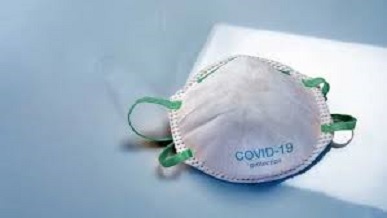- Face masks reduce the spread of the new coronavirus and may also lessen the severity of COVID-19.
- The present study finds that masks increase the humidity of the air that a person breathes.
- The researchers propose reasons that explain why increased humidity may reduce the severity of COVID-19 cases.
Researchers have found that wearing a mask increases the humidity of the air a person breathes in.
They suggest this may explain why mask-wearing has links with reduced COVID-19 severity.
The research, which appears in the Biophysical Journal, adds further evidence for the value of wearing masks.
Face masks have been a crucial non-pharmaceutical intervention in the COVID-19 pandemic. Researchers believe they reduce the chances of a person passing the virus to another person, as well as acquiring the virus themselves.
Further, while healthcare professionals continue administering effective vaccines around the world, mask-wearing is still necessary.
The Centers for Disease Control and Prevention (CDC) point out there is not yet enough information on how these vaccines work in the real-world to recommend people stop wearing masks, even for those who have received two doses of the vaccines.
Recent research, which appears in the Journal of General Internal Medicine and the New England Journal of Medicine, found that face masks effectively reduce SARS-CoV-2 transmission and may also reduce its severity.
The researchers behind the articles suggest this is due to mask-wearers likely having exposure to reduced amounts of the virus. However, other scientists have contested this finding.
The researchers behind the present study are also skeptical that exposure to a small amount of the virus may account for a mask-wearer to have a less severe case of COVID-19.
Instead, they suggest the answer may lie in the humidity of the air that a person breathes while wearing a mask.




